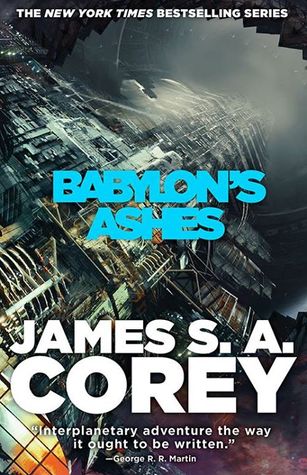Babylon’s Ashes by James S. A. Corey

This novel is the low point of the series for me, though it is, as these novels always are, readable and compelling, largely due to the deft use of action, point of view switches, character familiarity, and the rising swell of the larger arc of the story. At this point the background story of the protomolecule and the ancient aliens is becoming something to follow. The story of Marcos Inaros and his Free Navy, though, becomes heavy-handed and cumbersome. The signs of his decay as a leader are very clear, maybe a bit too much so. The whole soap opera-ish arc of Naomi, her lost son, and her former, now-evil lover feels ungainly, as if the sweep of history is reduced to a subplot of The Young and the Restless. There is also the uncomfortable and continuing depiction of the Belters as victimized underdogs in the face of the catastrophic attacks on Earth and the death of fifteen billion (I think this was the last count) people on Earth. The novel never reconciles the crimes committed against the Belters with the crime that a faction of their own people commit against billions of others. The depiction of this is startling and unrealistic. The scales have been more than balanced by this act of revenge. The boot against the neck of the Belters – a phrase that is repeated dozens of times throughout the novel series – has been well amputated. This level of genocide would horrify any decent people but the book tends to use it more as a plot device than a real and devastating event. Also disappointing is the god-in-the-box ending. The protomolecule and its magic destroy Marcos just at the last moment, after the intrepid crew of the Rocinante figure out how to evoke it. It was a bold choice to introduce the devastating attacks on Earth in book five, but the implications of that savagery overshadow the clever plotting of the next book. It feels wrong.
